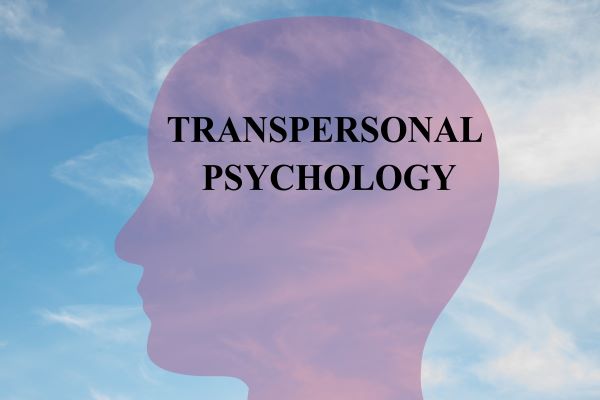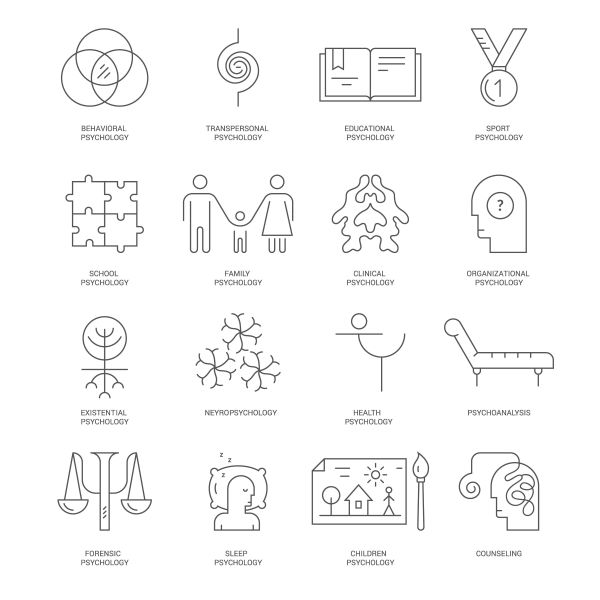If you’re interested in the spiritual aspects of the human psyche, you might want to consider a career in transpersonal psychology, which is sometimes referred to as spiritual psychology. The American Psychological Association (APA) places transpersonal psychology in the area of humanistic psychology that focuses on transcendental experiences and what causes these states of consciousness.

If you want to become a transpersonal psychologist or hold a different position in this field of psychology, you will typically need a graduate degree.
What Is a Transpersonal Psychology Degree?
Generally speaking, a transpersonal psychology program is a graduate-level degree program that encompasses studies specifically in the transpersonal discipline of psychology.
Understanding the Field of Psychology
It’s impossible to truly appreciate what transpersonal psychology means without first considering the context of the broader field of psychology. Psychology is the scientific discipline concerned with thinking and behavior.
RELATED: What Can I Do With a Degree in Psychology?
The field of psychology can be considered a bridge between the natural sciences, with some basis in biology, and the social sciences, which include the study of social behaviors and which use many of the research methods that inform research in psychology.
Psychology Jobs
As a career field, psychology is a broad area. Many psychologists work to help individual patients or clients.

Jobs in Counseling and Clinical Psychology
Clinical psychologists are concerned with psychopathology, or psychological disorders, and they treat patients who have been diagnosed with psychological disorders, particularly those whose disorders are severe.
On the other hand, counseling psychologists may draw upon the principles of psychology and psychological interventions to help counsel clients whose problems – like stress and life changes – may not constitute a disorder but may cause significant effects on their lives.
School Psychology Jobs
There are also school psychologists, whose focus is on helping students with developmental disorders and behavioral problems that affect their success in reaching educational goals.
Jobs in Psychological Research
Other psychologists focus on research to advance the understanding of the field of psychology. Working in research provides a basis for better understanding psychological disorders and psychological interventions.
Forensic and Industrial-Organizational Psychology Jobs
Still other psychologists work in more industry-specific roles. For example, a forensic psychologist is a professional psychologist who works in some capacity in the legal system. A forensic psychologist may testify in a civil case as an expert witness or provide an expert opinion as to the sanity or competency of a defendant on trial in a criminal case. An industrial-organizational psychologist looks for ways to improve the workplace – including productivity, profitability and employee retention and morale – through the application of psychological principles and methods.
Within the broad field of psychology are numerous subfields, including transpersonal psychology. Nearly any role in psychology, from counseling psychologist to research psychologist, may include some use of transpersonal psychology approaches in its work.
Humanistic Psychology and Spiritual Development
Transpersonal psychology, which emphasizes spiritual awakening of self-awareness as it pertains to human thought, emotions and behavior, is a subdiscipline of psychology that falls under the larger subdiscipline of humanistic psychology. Humanistic psychology is the belief that human behavior is based on the world around human beings and how they perceive that world.
In the field of transpersonal or spiritual psychology, some of the terms you may encounter include consciousness studies, meditation, guided imagery, mindfulness, human potential and awakening.
Developing a Spiritual Awakening
Within the subfield of transpersonal and spiritual psychology, practitioners of transpersonal psychology seek to help their clients develop different perspectives and levels of consciousness and help them with their journey through a personal transformation. This process of developing human consciousness has two components: understanding the nature of reality through diverse paradigms like the scientific paradigm and a holistic-systemic paradigm and examining the causes and effects of an “awakening” to a higher level of consciousness.
The awakenings to altered states that are so important in transpersonal studies of psychology can arise out of any number of possible causes: losses or traumas, sudden diagnoses or merely a conscious choice to gain awareness. The cause of a person’s increased consciousness (or their interest in attaining it) is less important in this field than the practices of exploring their spiritual consciousness and working toward enlightenment. Some of the methods used in transpersonal therapy or counseling, according to Psychology Today, include:
- Guided visualization and meditation
- Mindfulness practices
- Hypnotherapy
- Dream work, including lucid dreaming
- Spiritual exploration through art and music
- Journaling
It’s important to note that the spirituality involved in transpersonal psychology doesn’t necessarily pertain to following or practicing a certain religion, according to the International Journal of Transpersonal Studies – although religious practices and traditions may be part of an individual’s awakening. Rather, the spiritual aspects referenced in transpersonal studies of psychology refer to reaching a state of awareness that transcends the “individual self” or “humanness.”

Although Eastern religions like Hinduism and Buddhism have historically influenced the field of transpersonal and spiritual psychology, today’s transpersonal psychologists (and the patients or clients they help) may come from any religious background or claim no religious affiliation at all. In contemporary psychology, the spiritual traditions and practices that inform transpersonal perspectives on psychology are drawn from a variety of fields and exceptional human experiences. Even practices of martial arts that emphasize the mind-body-spirit connection may have a place in understanding the unique experience of humanity and finding ways to promote whole-person self-realization.
How Does Transpersonal Psychology Fit Into Mental Health Counseling?
It’s important to note that in professional practice in the field of transpersonal and spiritual psychology, a practitioner isn’t restricted to utilizing only transpersonal approaches to therapy. Often, psychologists and therapists – including those trained in transpersonal psychology – learn a variety of methods of counseling and therapeutic interventions throughout their initial career preparation and as part of their continuing education coursework throughout their careers as licensed professionals.
RELATED: What Degree Do I Need to Be a Holistic Counselor?
Humanistic therapy (and, by definition, its subfield of transpersonal therapy) is just one of the approaches to psychotherapy that a practitioner of mental health therapy may draw from, according to the American Psychological Association.
In fact, according to an article published in The Journal of Psychotherapy Practice and Research, “most” transpersonal clinicians utilize “conventional methods of psychotherapy,” and in some cases pharmaceutical treatments, in their clinical practices, as well as therapy pertaining to spiritual practice and awakening.
Formal Studies in Transpersonal Psychology
Transpersonal psychology may sound a little offbeat or at least somewhat unconventional. It’s true that the field of interest may appeal to other professionals working in largely unregulated careers, such as life coach.
However, there are licensed psychologists, as well as licensed therapists and clinical social workers, who utilize transformative coaching methods in their work as part of an evidence-based treatment plan. There are also researchers in the field of transpersonal psychology, exploring topics like the benefits of art therapy among cancer patients and the effects of resilience-focused educational programs on cognitive control.
Using Transpersonal Approaches in the Intervention of Psychological Disorders
Transpersonal psychology is a real subject of study and can be used responsibly in psychological interventions, although it is, of course, important to choose these methods of intervention only when appropriate. Obviously, transpersonal approaches shouldn’t take the place of evidence-based pharmaceutical or psychotherapeutic methods known to be effective for treating severe mental health disorders.
These methods may, however, prove very effective for patients and clients who are open to exploring their spirituality as part of coping with life stresses and problems or as supplemental treatments for mood and anxiety disorders.
A degree in transpersonal psychology or related areas of study is only awarded after successful completion of formal college-level education in the field.
Levels of Transpersonal Psychology Degrees
If you are interested in transpersonal approaches to the field of psychology, you might be wondering how to prepare for this field as a student. Here’s what you can expect from studying humanistic and transpersonal psychology at different levels of higher education.
RELATED: What Degree Do I Need to Be a Psychologist?
Due to the nature of studies in transpersonal psychology, students should carefully research potential degree programs before enrolling. Finding information on programs’ accreditation status, faculty experience and research undertakings and overall program or school reputation can help students avoid wasting their money on non-evidence-based “spiritual” courses that won’t hold any weight when it comes to preparing for a real career in psychology, counseling or transformative coaching.
Undergraduate Coursework for an Aspiring Transpersonal Psychologist
The first step to becoming a transpersonal psychologist is earning a bachelor’s degree. Because transpersonal psychology degrees are generally only offered at the postgraduate level, it will typically be in your best interest to earn a bachelor’s degree in general psychology.
Most general psychology programs at the undergraduate level provide a broad overview of the field, including the general principles and research methods used and some of the larger subfields of psychology. Since you already know that you have an interest in transpersonal methods and studies, specifically, pursuing a bachelor’s in psychology with a focus on humanistic courses may make the most sense for you, as this background will help prepare students for a transpersonal graduate program.
A small number of select schools do offer bachelor’s degrees that offer a concentration in or are based out of the field of transpersonal and spiritual psychology. For example, Sofia University in Palo Alto, CA, offers a Bachelor of Arts in Psychology completion program that it advertises as being “rooted in the field of transpersonal psychology.”
A Master’s Degree in Transpersonal Psychology
At most institutions, it’s only when students reach the stage of pursuing a graduate degree, like a Master of Arts degree, that they are able to focus their studies more specifically on transpersonal psychology. A master’s degree in counseling psychology prepares students for jobs that encompass more extensive knowledge of consciousness studies, whole-person approaches and other areas of transpersonal approaches to psychotherapy.
If you’re open to holding the job title of counselor rather than psychology, you may instead prepare for your career by completing a master’s in counseling degree program. These programs can often be completed in three years.
RELATED: What Is the Fastest Way to Become a Psychologist?
A Master of Arts in Transpersonal Psychology Curriculum
The curriculum of a master’s level transpersonal psychology program is made up of core courses to provide students with all-around knowledge of this field and elective courses that allow students to branch out more, sometimes with different concentrations or specializations.
Students can expect their core courses to further their understanding of topics such as spiritual psychology, spirituality, consciousness, and how to foster whole-person development. Elective courses in a master’s program prepare students in different areas of transpersonal psychology, such as Daoism, spiritual awakening, mindfulness, and ecopsychology.
Transpersonal psychology may also be a concentration offered within a broader program of study in psychology or counseling psychology. For example, students in Meridian University’s transpersonal psychology concentration take classes like States and Structures of Consciousness, Meditation and Spiritual Development, Psychology of Mystical Experience and Transformative Power of Ritual for this specialization.
However, they also take classes in more conventional areas of study, such as psychopathy diagnosis and treatment, psychotherapy integration, group process, psychopharmacology, human development, research methods and social justice.
Pursuing a Doctoral Program for Transpersonal Psychology
A doctorate program in transpersonal psychology will typically include a stronger research focus than a master’s degree program. The core courses and electives involved in these programs vary depending on the focus of the program but may include topics such as cognitive neuroscience, philosophy, transpersonal approaches, and whole system development. Some programs even require residential intensives, while others may require a dissertation.
RELATED: What Degree Do I Need to Be a Cognitive Neuroscientist?
Generally, Doctor of Psychology (PsyD) programs are faster to complete than Doctor of Philosophy (PhD) programs. The fastest PsyD degree programs can be completed in as little as three years.
For those PhD programs that require a dissertation, students will use the doctoral-level courses they take as part of their curriculum to improve their scholarly writing, conduct their independent research and analyze the data they’ve acquired. These courses set students up to successfully prepare their dissertation and defend it before a committee in their final year of the program.
What Can You Do With a Transpersonal Psychology Degree?
Upon successful completion of a transpersonal psychology program, students will be ready to start their professional lives, helping others benefit from the transformative power of elevated human consciousness. The options available do depend on the program completed, but students can find success with either a master’s or doctorate in transpersonal psychology. Either program will prepare you to enter the field of teaching, but other top choices include becoming a life coach, opening a private practice, or entering the world of research.
A masters’ in transpersonal psychology can help you become a life coach certified by the International Coaching Federation. The International Coach Federation (ICF) defines being a life coach as someone working with their clients to help them with their potential in the professional sense as well as the personal aspect. Life coaches don’t diagnose clients with mental health disorders, especially since they aren’t licensed medical providers. Instead, they work to help clients with goals like self-actualization, identifying their personal obstacles and motivating themselves to make any necessary changes.

The Bureau of Labor Statistics (BLS) reports that life coaches may find themselves working for residential care or treatment facilities or even as consultants for businesses looking to provide life coaching to their employees.
For those that want more control over their future, opening a private practice might be the right choice. Many of the consultants for businesses are actually self-employed, according to the BLS. This option can even start as a part-time side job until it grows into a more sustainable career and become your primary occupation. Depending on your qualifications, you may offer your services in an integrative practice that encompasses counseling, psychotherapy, life coaching, spiritual mentorship and other forms of assistance.
You could decide to pursue research interests in the field of transpersonal and spiritual psychology after completing your doctorate program. What questions about spiritual practices, meditation or whole-person personal development invoke your scientific curiosity? Exploring these questions through scholarly research can help you not only better understand human potential – and reach your own full professional potential along the way – but also advance the fields of humanistic and transpersonal psychology.
What Level of Education Do You Need to Work in the Field of Transpersonal and Spiritual Psychology?
After completing your bachelor’s, you will next need to decide what graduate degree program for transpersonal psychology is right for them. Which level of higher education you need in the field of transpersonal and spiritual psychology depends on your educational goals and professional goals.
For instance, those looking to enter the healthcare field will need to be licensed, which may require further study past a transpersonal psychology program. Other occupations, such as counselors, teachers, or even consultants, may not require a license.
Transpersonal Psychology Jobs With a Master’s Degree
Most students looking to become a social worker, teacher or even a life coach using methods of transpersonal psychology only need to earn a Master of Arts in Transpersonal Psychology (MATP) degree. The average time to complete a program like this is two years. Upon completion of the program, students will not only be able to help others with transpersonal or spiritual processes but also develop their own self-awareness.
A student in this master’s degree program will be able to also blend these ideas into a professional setting. This might involve exploring different ways of working with others to find ways to help them express themselves.

Transpersonal Psychology Jobs With a Doctoral Degree
If your goal is to become a licensed psychologist or to pursue empirical research pertaining to the effects of spiritual practices on emotional states and the psychological wellbeing of a human being, a master’s degree may not be a high enough level of education to achieve the professional life you have in mind. For students looking to attain licensure in clinical practice, pursue research or otherwise set themselves apart from others in the field, a doctoral program would be their best bet.
A Doctor of Philosophy in Transpersonal Psychology will build on your Master of Arts degree (or your bachelor’s degree) to delve deeper into the field of transpersonal and humanistic psychology. This program requires analyzing and explaining human behavior using knowledge about the world environment around an individual. Students will also be looking inward at the development of their own spirituality and how to continue it.
If you’re working toward your Doctor of Philosophy degree to qualify for licensure, it’s important to make sure that the program you are pursuing meets all eligibility requirements for your state’s licensing organization. This may include the school or program’s accreditation status, the curriculum requirements and experiential learning requirements like a doctoral internship.
RELATED: Are There Organizations I Should Join When Wanting to Get Into the Psychology Field?
A doctoral degree in psychology can take a long time to complete – often, as long as four to six years or more. However, some schools offer a doctoral degree program in transpersonal psychology that can be completed in as little as two years or three years of full-time study.
RELATED: How Long Does It Take to Become a Psychologist?
What to Look for in a Transpersonal Psychology Degree Program
Before you submit an application form for an academic program in the field of humanistic, transpersonal or spiritual psychology, you need to do some research to make sure that this program is right for you. There are many factors to consider once you have found a school with this graduate program, ranging from the reputation of the institution or university itself to the cost of attendance. Some students complete their studies in transpersonal and spiritual psychology in person, while others take online classes. Students may study this field on a part-time or full-time basis and should speak with a faculty member advisor whose job is to guide students through navigating their educational options.
A school’s accreditation shows that the education it provides meets outside standards. Accreditation is a major factor in the transferring of credits between institutions and the acceptance of academic achievement for licensure and credentialing purposes. Regardless of which school you choose to pursue, making sure it is accredited should be a top priority.
Other factors to look for in a school include the quality of faculty, opportunities for research experience and experiential learning and the success of the degree programs as measured by reported retention and career placement outcomes of students.
